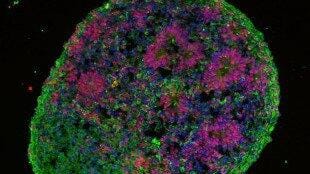New Cell Line Produces Critical Component for Organoid Cultures

Trevigen has released a cell line that produces a fundamental element for propagating organoid cultures. The HA-R-Spondin-Fc293T cells can be used to obtain Roof plate specific Spondin-1 (R-Spondin 1 or RSPO1) as well as RSPO1 media. RSPO1 is critical for the support and proliferation of organoid progenitor stem cells from mice and humans. RSPO1 has been succesfully used to produce stem cells of diverse lineages of the human digestive system.
3D cell cultures are a recent innovation in drug screening that allow to test a pharmacological agent in vitro before entering the clinical phase. In the appropriate environment, cultured cells acquire an organ-like organization on plate, and can be used as a platform to perform all kinds of assays. These organ models can save a lot of time and money to pharmaceutical companies and research laboratories. A key ingredient for organoid propagation is RSPO1, a R-spondin family protein. Also known as CRISTIN3, it positively regulates Wnt/beta-catenin signaling and induces intestinal epithelial cell healing and proliferation, as well as intestinal epitelial stem cell renewal. The 293T cell line is transfected with the murine RSPO1 gene, thus becoming a source for purified RSPO1 or RSPO1 media.
The HA-R-Spondin-Fc293T cells can be propagated indefinitely and produce an unlimited amount of RSPO1 protein. The cells are tested by Trevigen and free of pathogens.
Source: Trevigen
